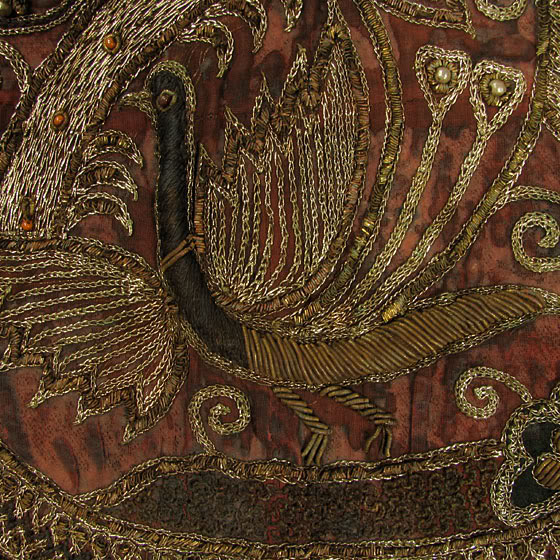===
0268,
1
===

=== |
 |
farsh : 'What is spread (of household furniture, &c.), carpeting, bedding; a carpet, a mattress, a bed; a mat; a floor-cloth; a pavement; —the floor, ground; a wide or spacious plain or place; the earth'. (Platts p.779)
FWP:
SETS
MOTIFS == ROAD; SCRIPT EFFECTS
NAMES == HOURI
TERMS == FRESH WORD; OPENING-VERSEThe idea of a farsh-e rah is that the highly honored guest is provided with a special, temporary walkway of valuable carpets, so that upon arrival his or her precious feet won't even be allowed to touch the dirty, common, rough street or entry-way. Ghalib offers a wonderfully sarcastic version of such a carpet-path to the Advisor:
G{19,3}.
The present verse also offers some enjoyable script (and sound) effects: consider ḥāl ḥāl chal at the end of the first line, and chāl chal at the end of the second. Rarely have the constraints of an opening-verse been turned so cleverly into assets.
Note for translators: SRF's point about tezī as meaning both 'swiftness' and 'sharpness' finds a supporting counterpoint in āhistah , with its two senses of 'slowly' and 'gently'. In English in both cases these two senses seem quite separable, so a good translator should always be alert to the problem. There isn't any one ideal solution, since of course the context is determinative; if the context is vague, the translator has to make the choice.